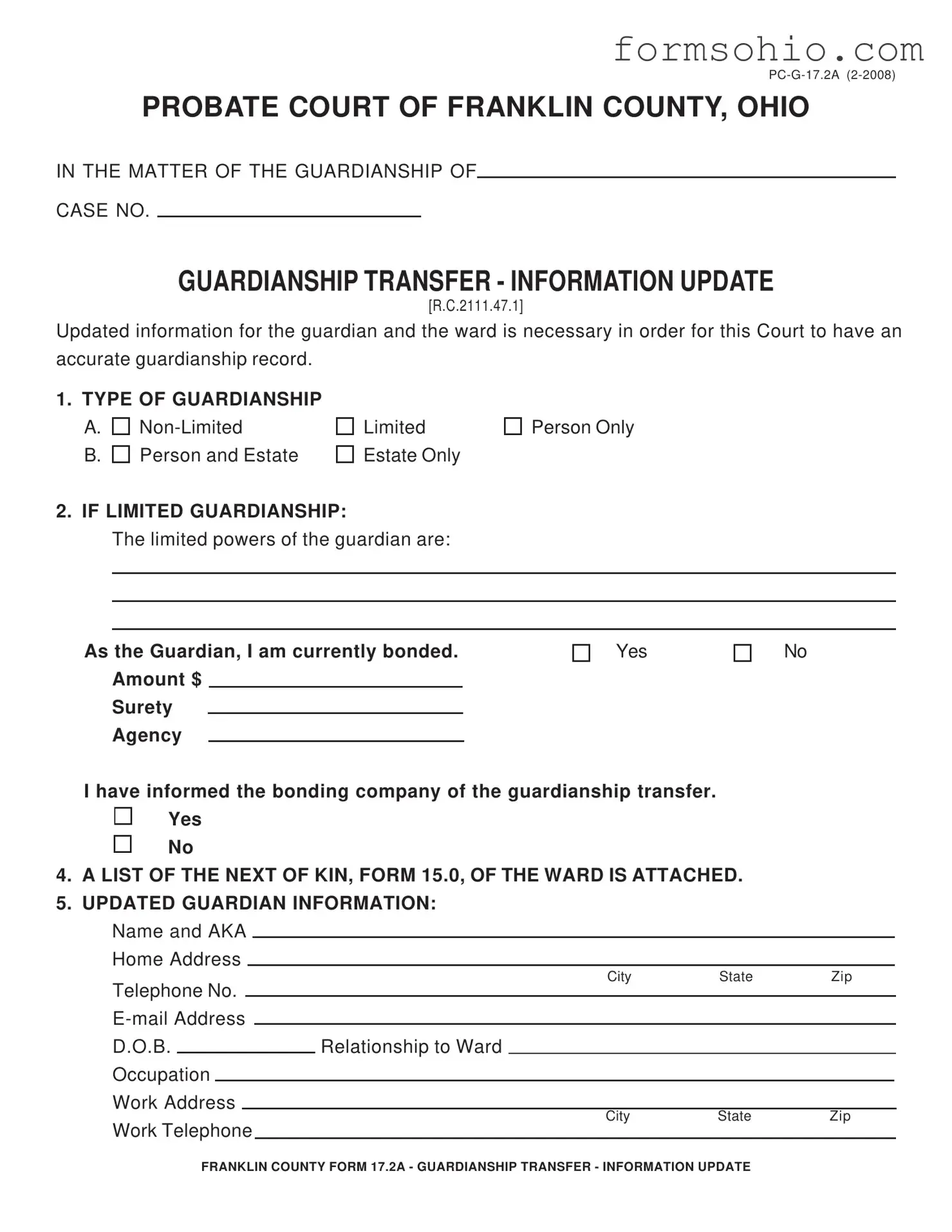Filling out the Ohio PC G 17 2A form can be a straightforward process, but many individuals make common mistakes that can lead to delays or complications. One frequent error is not clearly indicating the type of guardianship. This form requires you to specify whether the guardianship is limited or non-limited, and whether it pertains to the person, estate, or both. Failing to make these distinctions can create confusion and may necessitate additional clarification from the court.
Another mistake involves the completion of the updated guardian information section. It is crucial to provide accurate and current details, including your name, address, and contact information. Omitting any of this information or providing outdated details can hinder communication and affect the court's ability to reach you when necessary.
Many people also overlook the importance of disclosing any criminal history. The form specifically asks whether the guardian has been charged with or convicted of crimes involving theft, violence, or substance abuse. Not answering this question truthfully can lead to serious legal repercussions, including potential removal as guardian.
Additionally, some individuals fail to attach the required documentation, such as the list of next of kin for the ward. This information is essential for the court to have a complete understanding of the ward's family dynamics and support system. Without this attachment, the form may be considered incomplete.
Another common oversight is neglecting to provide updated information regarding the ward. This includes the ward's current address, contact numbers, and any changes in their medical status or rights. Such omissions can lead to misunderstandings about the ward's needs and rights, ultimately affecting their care and legal standing.
In the section concerning the ward's rights, individuals sometimes fail to specify which rights have been retained. This can result in ambiguity regarding the ward's legal status and what decisions they can still make independently. Clearly stating these rights is essential for the court's understanding.
Some applicants also forget to provide details about important documents related to the ward, such as wills, powers of attorney, or living wills. Not indicating where these documents are located can complicate matters if decisions need to be made regarding the ward's care or estate.
Another frequent error is not including contact information for individuals who can be reached in case of the guardian's incapacity or death. This information is vital for ensuring continuity of care and support for the ward. Omitting it can leave the ward without immediate assistance in critical situations.
Lastly, individuals often fail to review the entire form for accuracy before submission. Simple typographical errors or missing signatures can lead to delays in processing. Taking the time to double-check all entries ensures that the form is complete and accurate, which can facilitate a smoother guardianship transfer process.




